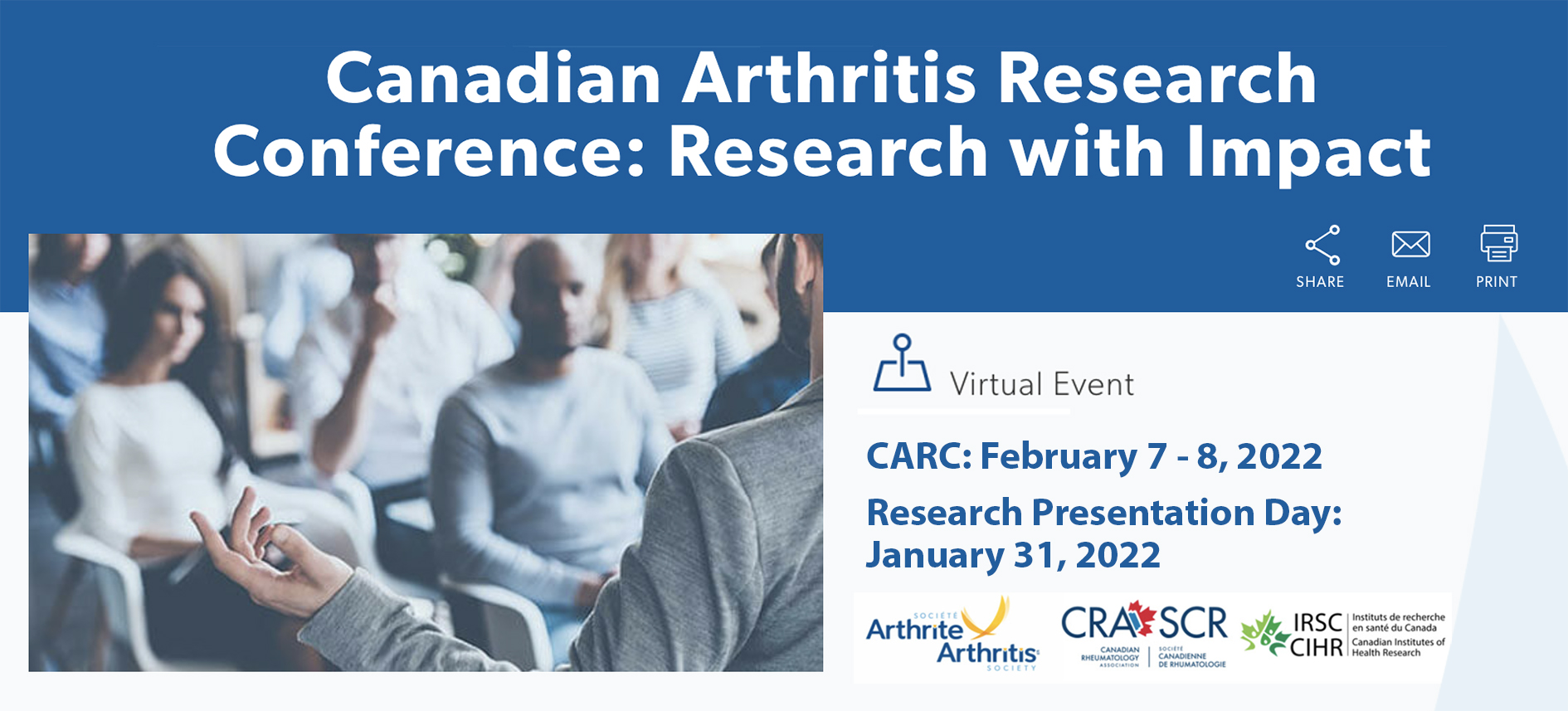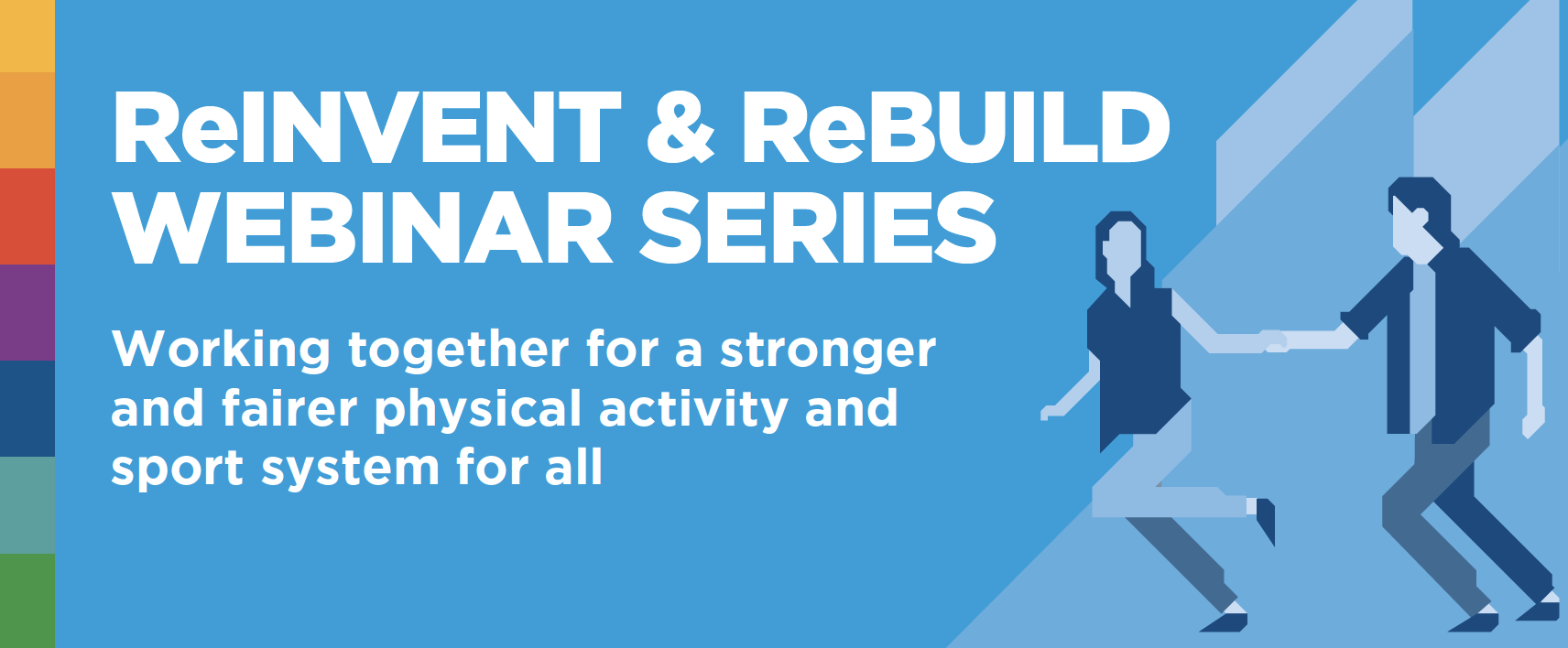Join the Canadian Musculoskeletal (MSK) Rehabilitation Research Network for the GaitNET-Osteoarthritis Canada Seminar Series (Nov 30th)

Date: Tuesday, November 30, 2021 | Time: 12:00-2:00pm (EST) via Zoom Free, but pre-registration is required.
This exciting seminar series focuses on research priorities in gait biomechanics research. We aim to stimulate discussion among researchers, trainees and clinicians to increase collaboration, build links between biomechanics labs and discuss priorities and opportunities in the field.
Building on the successful Biomechanics & Osteoarthritis Symposium held in May, 2021 (listen to the recorded session here), this November 30th webinar focuses on clinical biomechanics research relating to pain and gait biomechanics.
Leading experts Drs. Monica Maly, Katherine Boyer, Tuhina Neogi, Lisa Carlesso, and Tim Wideman will share advances in pain science including mechanisms of pain generation and perception, as well as how altered gait biomechanics may influence pain. They will discuss key concepts to consider when conducting clinical biomechanics research that includes both pain and biomechanical outcomes.
Speaker information:
Dr. Katherine Boyer (Associate Professor, University of Massachusetts Amherst)
Dr. Boyer’s researchers lower extremity mechanics during locomotion and the mechanisms for adaptations in ambulatory mechanics in aging, with overuse injury and in response to mechanical and pharmacological interventions. She uses a stimulus-response experimental model to probe the interaction between gait mechanics, neuromuscular function, systemic biological marker and joint injury and degeneration.
Dr. Monica Maly (Associate Professor, University of Waterloo)
Dr. Maly’s research program focuses on developing biomechanically-sound physical activity guidelines for adults with the most common forms of arthritis that are associated with aging. Promoting physical activity is paramount to the well-being of Canadian adults as they age – exercise provides as much pain relief for arthritic pain as drugs, while also reducing the risk for co-morbidities including cardiovascular disease and cancer. However, excessive physical activity, due to work or recreation, can promote joint damage. Canadians with arthritis have no guidance on the amount, type or intensity of physical activity that damages joints. She uses biomechanical methods to evaluate the impact of physical activity on joint health, with an aim to develop guidelines for physical activity that promote health and productivity, while minimizing the risk for arthritis progression.
Dr. Tuhina Neogi (Professor, Boston University)
Dr. Neogi is a rheumatologist and epidemiologist who researches knee osteoarthritis and gout, pain mechanisms in knee osteoarthritis, as well as methods issues in rheumatic diseases. She has held peer-reviewed foundation and NIH funding since 2003, with >250 peer-reviewed publications.
Dr. Neogi is a past chair of the FDA Arthritis Advisory Committee, has served on the boards of two international societies: Osteoarthritis Research Society International (OARSI) and Gout, Hyperuricemia, and Crystal-Associated Diseases Network (G-CAN), and on committees for the American College of Rheumatology (ACR) and International Association for the Study Pain (IASP).
Dr. Lisa Carlesso (Assistant Professor, McMaster University)
Lisa Carlesso is a licensed physiotherapist and an assistant professor in the School of Rehabilitation Science at McMaster University. Her extensive academic background in physical therapy and clinical epidemiology have shaped her research interests in common age-related musculoskeletal problems. Dr. Carlesso’s most recent studies focus on improving treatment and outcomes for people with musculoskeletal disorders, such as knee osteoarthritis and chronic low back pain and is interested in understanding the mechanisms and consequences of pain as they relate to disability, mobility, participation and healthy aging.
Dr. Michael Hunt (Professor, University of British Columbia)
Dr. Hunt’s research interests focus on identifying changes in movement patterns and biomechanics as a result of injury or disease. The Motion Analysis and Biofeedback Laboratory uses state-of-the-art real-time motion analysis techniques to analyze movement pattern differences between injured and healthy individuals. He then uses this information to develop targeted treatment approaches that aim to optimize function and/or prevent disease progression. His primary group of interest is individuals living with osteoarthritis (OA) of the knee. He has identified key gait deviations exhibited by those with OA that have the potential to alter the loading patterns at the knee – a known risk factor for disease progression. He has also studied the role of exercise and movement retraining on biomechanical (joint loading) and clinical (pain, function) disease characteristics. Dr. Hunt works closely with experts in rheumatology, physical therapy, orthopaedic surgery, and neuroscience.
Dr. Timothy Wideman (Associate Professor, McGill University)
The overarching goal of Dr. Wideman’s research is to improve care for people living with pain. He approaches this goal by advancing research related to the following three themes: Understanding and targeting biopsychosocial risk factors for prolonged pain and disability, Improving entry-level pain education for health professionals through large-scale knowledge translation initiatives, and Developing person-centred approaches to pain assessment and management that help validate and support people living with pain.



 Registration link:
Registration link:  Registration link:
Registration link:  Registration link:
Registration link:  Registration link:
Registration link: Registration link: TBC
Registration link: TBC Registration link: TBC
Registration link: TBC